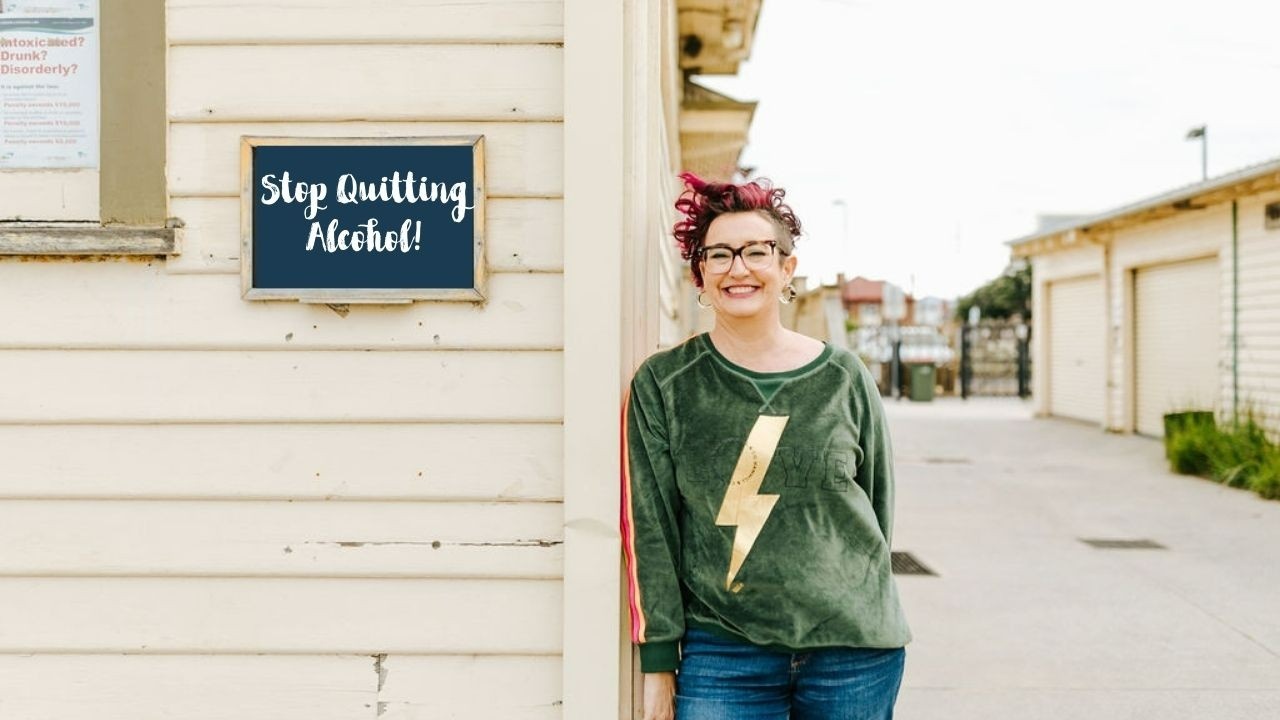Stop ‘quitting’ alcohol

Stop ‘quitting’ alcohol
So often, when we think about how we want to enhance our lives, we start with all things we need to ‘stop’. We set about decluttering our inner workings like they’re an overstuffed wardrobe.
Energised and ruthless, we chuck out everything ugly and ill-fitting – all the things we no longer want to be part of who we are. Until, exhaustion hits. Then we look around at the mountains of odd socks and resistance bands, and – overwhelmed by fatigue and futility – we decide to come back to it tomorrow, and tomorrow and tomorrow…
Because in picking that enormous battle, we had already lost.
Great ideas don’t become sticky changes through willpower – by bloody-mindedly ploughing through something awful – change happens when we set our sights on a new horizon. When we’re motivated by hope and optimism.
We have to believe with all our hearts that what’s on the other side is better because, when that happens, getting there isn’t painful and isn’t a battle – it’s a journey and it’s an adventure.
The way you think affects how you drink
Despite the jocular ‘mummy wine’ narrative, many women feel like a failure. They desperately want to change their relationship with alcohol, but either it feels too impossible to try, or it never sticks.
Because the story we’ve told ourselves is that alcohol makes us ‘fun’ and it makes us forget our worries; it’s where we rest our heads, weary from the world. So why – deep down at our core – would we want to give it up?
To make change happen, we have to even up the score. We have to pull apart alcohol’s myths, and delve deep into the joy and the freedom that comes after.
Like asking myself, honestly, was it actually ‘self-care’ when I was passed out in the garden while we had friends round? Was I a better, more relaxed parent when I tried to stop my kids from performing, so I could get on with drinking? Was I ‘fun’ when I fell into a rosebush and got a thorn lodged near my jugular?
We need to question and examine every point at which alcohol pops up in our lives, observing its pull and its consequences. We have to taste it, slowly and mindfully, and understand the truth of our experience.
Because so much of our relationship with alcohol is a social and cultural construct. In a different world, would we have pushed through that first sip? Would we have accepted the trade-off between what it gives us, and what it leaves behind? And would we have actively chosen to add it to our lives?
These are all questions we need to ask. But we can’t do it while we’re beating ourselves up for having one too many, or despairing that we’ve (yet again) cracked open that 7pm bottle. We need to approach it as an experiment – a gentle examination and an exploration.
And then we let the rest unfold.
Emma Gilmour is a qualified Counsellor and Psychotherapist and a certified This Naked Mind, Gray Area Drinking & Tuning in to Teens™ emotionally intelligent parenting coach for parents who want to model a healthy relationship with alcohol for their kids - www.hoperisingcoaching.com.

